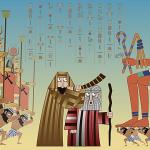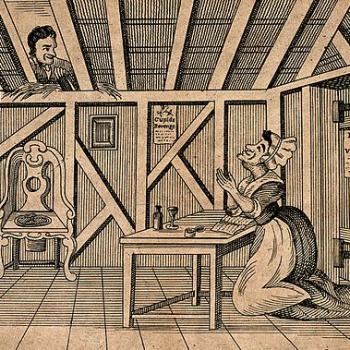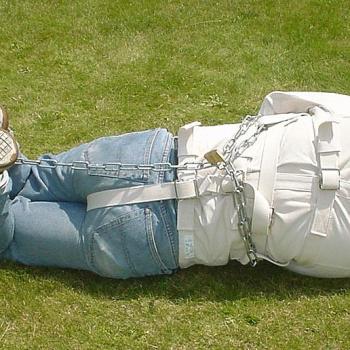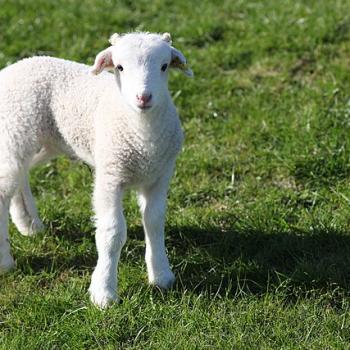It’s a vexed question to be sure, but here’s how I have come to envision a possible solution to the problem of how individual sinners become saved through grace. I have employed the help of a classic fairy tale, because I find that fairy tales — being the imaginative products of a Christian civilization — embody profound Christian truths in vivid, colorful and memorable images. I have pointed out before, in my book Moral Majesty, Spiritual Splendor, how Rumpelstiltskin spinning straw into gold, for example, is like a freshly-painted picture of God turning temporary evil into eventual good.
The question before the house is: How does a sinner dead in his sins become saved? Is it all free will or is he “doomed” to salvation by right of his being elected or chosen ahead of time by God Himself? Here the fairy tale of Sleeping Beauty comes to my aid. You’ll recall that because of an oversight on the part of her elders, Sleeping Beauty is cursed with a perpetual sleep (representing the spiritual death of the individual soul as a result of sin). Prince Charming (representing the Holy Spirit in my understanding of the tale) comes along, falls in love with the beautiful young lady (the human soul is usually pictured as a lovely young woman, as in the fable of Psyche and Cupid), and kisses her. The kiss awakens Beauty, and she is astonished at the experience.
I see this as a symbolic or parabolic description of the Holy Spirit graciously awakening a sinner from spiritual death after the sinner has heard the gospel. The sinner is made spiritual alive, as only the Holy Spirit could arrange. But at this point Sleeping Beauty has still not committed herself to Prince Charming. She is wide-eyed with wonder, and weighing his claims and “charms”, certainly, but who knows whether she will accept him as her one and only — her lord and master and husband? The issue is in doubt, and everything hangs in the balance. What will she do?
If the human soul — made temporarily alive and free to choose as a result of nothing less than a wholly unearned act of grace — rejects the Spirit at this point, she is lost forever. If she accepts him, they will be wedded spiritually forever, and she will grow to know her heavenly spouse more and more as time goes by. There will eventually be a “wedding supper of the Lamb”, and all will rejoice throughout eternity. But the choice is hers, and — as scripture confirms — the only unforgiveable sin is to blaspheme and insult Prince Charming by rejecting him.
So that’s how I see it. Grace and nothing but grace initiates the process by which justification may or may not occur. Yet free choice plays its part after (and only after) the Holy Spirit has given one the opportunity to make the most vital decision of one’s lifetime. Grace and free will work together. There is no other way. You can’t have one without the other.













